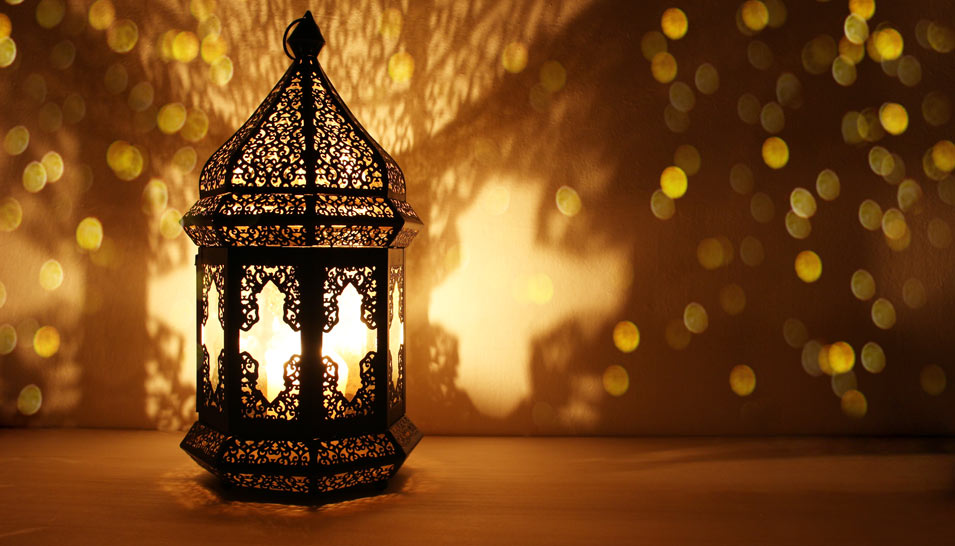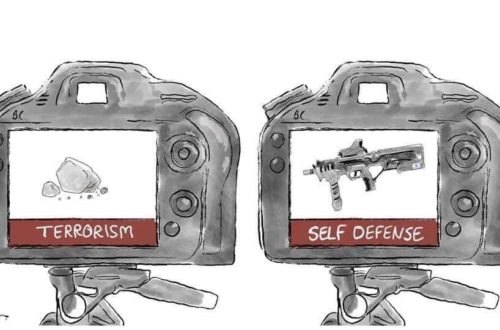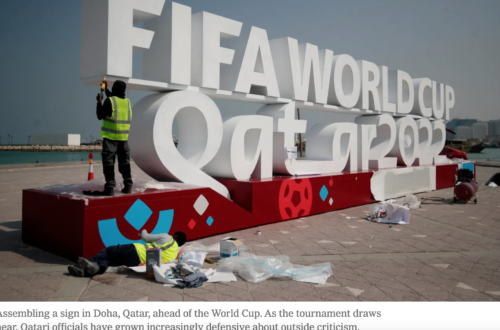Mayor Jacob Frey announced in a news release., allowing the call of the prayer Adhan for Cedar-Riverside Residence during Ramadan. ” The Muslim call to prayer will be broadcast the traditional five times a day in the Cedar-Riverside neighborhood of Minneapolis, beginning with the start of Ramadan this week and continuing through the end of the religious holiday in May.” Reported Startribune. RAMADAN, in the time of the COVID-19 pandemic, offers more than the call to parayer, Adhan during Ramadan. As Mayor Frey eloquently explained. “At a time when physical distancing requires we pray apart, it’s incumbent on leaders to create a sense of togetherness where we can”. “Adhan provides solidarity and comfort, both of which are essential during a time of crisis,” he added. In the time of pandemic and confusion, “Our collective behavior will be the primary determinant of whether we can keep this virus in check,” explained in the Times, David A. Kessler, a medical doctor.
 Ramadan will start This week, Thursday, or maybe Friday, depends on in which country or region you live. Muslims still use the naked eye to spot the beginning of the month moon, crescent. Ramadan, one of Islam’s five pillars, and it is the most sacred month for Muslims. It is the month when God revealed the first verses of the Quran to the Prophet Muhammed. In the time of this COVID-19 pandemic, Social distancing, lockdown, and self-Quaranteen. Ramadan could not have come any sooner. We all need it; if anything, it is a welcoming guest to not just for Muslims around the world but us all. The holy month of Ramadan, 30 days of fasting, 30 days of reflections, praying, and spiritual cleansing. In a time of food shortage, billion and half of Muslims around the world will observe the fasting (refraining from eating and drinking at the day) for a month would help out eas the food rush and rationing. Amid pandemic, the benefits of fasting are numerous, mostly giving us the self-control that strengthens our spiritual nature to stay healthy. While thousands of anti-quarantine protesters are in the streets, defying social distancing orders to protest around the U.S. “Protests took place in Texas, Indiana, New Hampshire, Nevada, Maryland, Utah, Wisconsin, Washington, and Colorado. “. They reported “Democracy Now. In Ramadan, Muslims are traditionally cutting down on activities, going on self-Quranteen called Itikaf. It is a spiritual retreat, where many Muslims spend their days and nights in isolation, reflecting, reading the Quran, and praying special the last ten days of Ramadan. Where Laylat Al Qadr is traditionally celebrated on the 27th day of Ramadan, it is known as the “Night of Power, or the night of decree.
Ramadan will start This week, Thursday, or maybe Friday, depends on in which country or region you live. Muslims still use the naked eye to spot the beginning of the month moon, crescent. Ramadan, one of Islam’s five pillars, and it is the most sacred month for Muslims. It is the month when God revealed the first verses of the Quran to the Prophet Muhammed. In the time of this COVID-19 pandemic, Social distancing, lockdown, and self-Quaranteen. Ramadan could not have come any sooner. We all need it; if anything, it is a welcoming guest to not just for Muslims around the world but us all. The holy month of Ramadan, 30 days of fasting, 30 days of reflections, praying, and spiritual cleansing. In a time of food shortage, billion and half of Muslims around the world will observe the fasting (refraining from eating and drinking at the day) for a month would help out eas the food rush and rationing. Amid pandemic, the benefits of fasting are numerous, mostly giving us the self-control that strengthens our spiritual nature to stay healthy. While thousands of anti-quarantine protesters are in the streets, defying social distancing orders to protest around the U.S. “Protests took place in Texas, Indiana, New Hampshire, Nevada, Maryland, Utah, Wisconsin, Washington, and Colorado. “. They reported “Democracy Now. In Ramadan, Muslims are traditionally cutting down on activities, going on self-Quranteen called Itikaf. It is a spiritual retreat, where many Muslims spend their days and nights in isolation, reflecting, reading the Quran, and praying special the last ten days of Ramadan. Where Laylat Al Qadr is traditionally celebrated on the 27th day of Ramadan, it is known as the “Night of Power, or the night of decree.
 It commemorates the night that the angle Jabrile first revealed the Quran to the Prophet Muhammad. In Ramadan, the most critical days of Muslim’s lives to pray, read the Quran, and ask for forgiveness. In the month of Ramadan, Muslims refrain from eating and drinking, refraining from evil-doing activities avoid minor vices. Muslims deprived themselves of materials needs, feeling for the hungry around the world, millions of them now, are in the lockdown, and isolated! In Ramadan, traditions are suiting well in time of the pandemic, fasting all day, results in cutting down on physical activities, and respecting social distancing regiments. The hardest part about fasting in America was not so much the long hours and the heat, it is fasting in a country where eating is a form of entertainment, where meals, coffee breaks and snacks everywhere and eating never seem to cease. Now, restaurants, shops, cafes, and social clubs are virtually closed. Modesty in behavior and public appearance is encouraged, especially in Ramadan. As people are rushing to find face masks to wear, Muslim women already have their covers of hijab and Niqab (full coverage of the body and face) even if they didn’t do it for the rest of the year. In the time of this infectious pandemic, these natural masks, now gained social acceptance around the world. The attacks on Hijabi women are going down, and Hijabi Muslim women are blending in where everyone seems to be wearing a face mask or a headcover. Millions of people are locked down, elders and seniors in nursing homes, health providers on frontlines fighting for us to stay alive, all need our help. In Ramadan, Muslims are giving Zakat/ charity and allowed to provide urgently in times of crisis, and COVIS-19 is a significant crisis. These charities are giving to people in need regardless of their religions or affiliations. In Ramadan, the tradition of a group praying Tarwweh, which is an extended night praying, we all need praying. In the time of the pandemic, the fear is not just the spread of the infectious killer virus, but more importantly, the fear of the infectious of fake news. We have seen fake leaders, fake experts spreading fake facts about the virus, its origins, and its treatments. Muslims are asked to be vigilant in times of crisis. As the Quran teaches us, If someone comes with some news, we need to be discerning, verify them from the sources. Ramadan is one of the Islamic five pillars, but now, it could be a crucial pillar for anyone to survive in the time of the pandemic.
It commemorates the night that the angle Jabrile first revealed the Quran to the Prophet Muhammad. In Ramadan, the most critical days of Muslim’s lives to pray, read the Quran, and ask for forgiveness. In the month of Ramadan, Muslims refrain from eating and drinking, refraining from evil-doing activities avoid minor vices. Muslims deprived themselves of materials needs, feeling for the hungry around the world, millions of them now, are in the lockdown, and isolated! In Ramadan, traditions are suiting well in time of the pandemic, fasting all day, results in cutting down on physical activities, and respecting social distancing regiments. The hardest part about fasting in America was not so much the long hours and the heat, it is fasting in a country where eating is a form of entertainment, where meals, coffee breaks and snacks everywhere and eating never seem to cease. Now, restaurants, shops, cafes, and social clubs are virtually closed. Modesty in behavior and public appearance is encouraged, especially in Ramadan. As people are rushing to find face masks to wear, Muslim women already have their covers of hijab and Niqab (full coverage of the body and face) even if they didn’t do it for the rest of the year. In the time of this infectious pandemic, these natural masks, now gained social acceptance around the world. The attacks on Hijabi women are going down, and Hijabi Muslim women are blending in where everyone seems to be wearing a face mask or a headcover. Millions of people are locked down, elders and seniors in nursing homes, health providers on frontlines fighting for us to stay alive, all need our help. In Ramadan, Muslims are giving Zakat/ charity and allowed to provide urgently in times of crisis, and COVIS-19 is a significant crisis. These charities are giving to people in need regardless of their religions or affiliations. In Ramadan, the tradition of a group praying Tarwweh, which is an extended night praying, we all need praying. In the time of the pandemic, the fear is not just the spread of the infectious killer virus, but more importantly, the fear of the infectious of fake news. We have seen fake leaders, fake experts spreading fake facts about the virus, its origins, and its treatments. Muslims are asked to be vigilant in times of crisis. As the Quran teaches us, If someone comes with some news, we need to be discerning, verify them from the sources. Ramadan is one of the Islamic five pillars, but now, it could be a crucial pillar for anyone to survive in the time of the pandemic.






